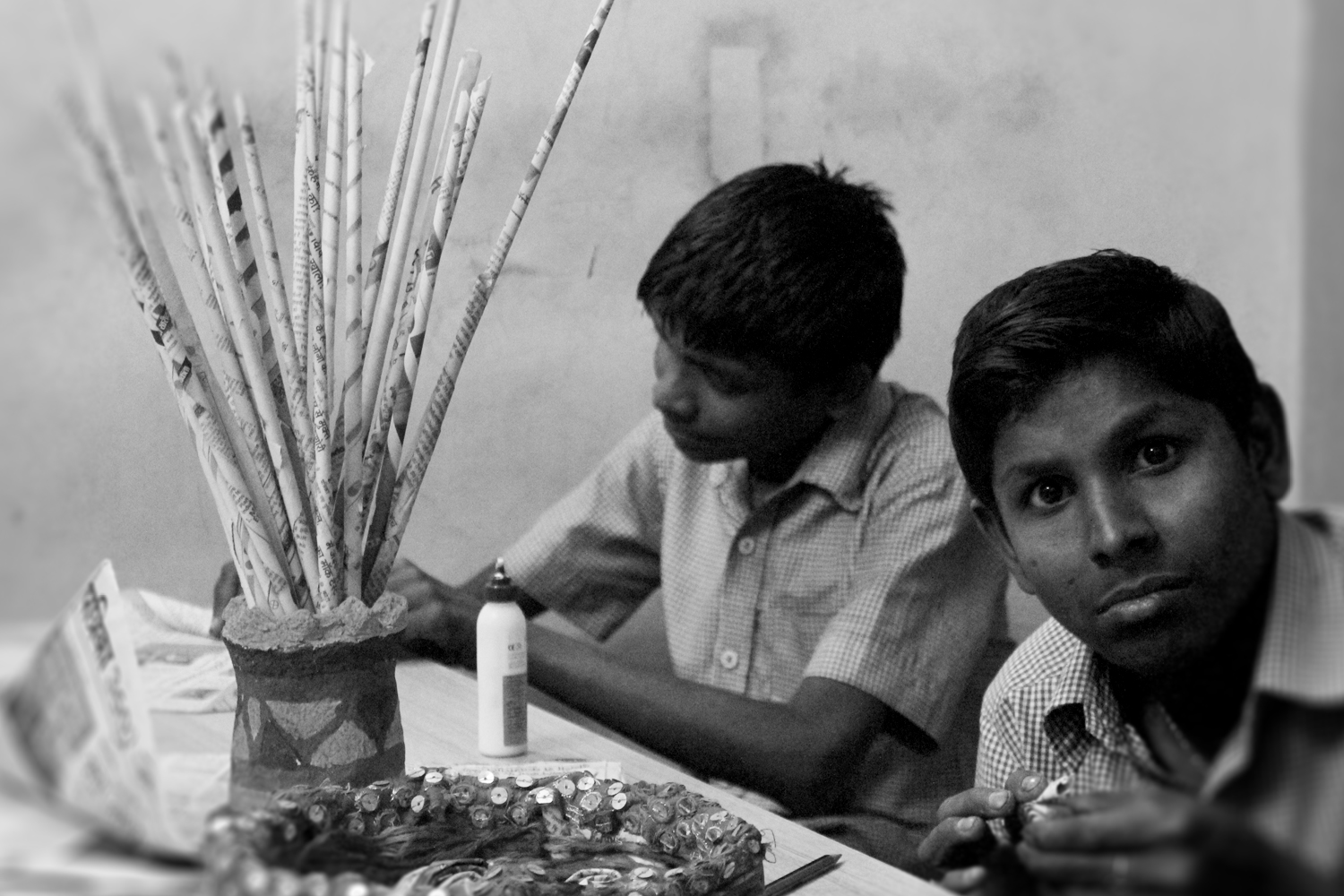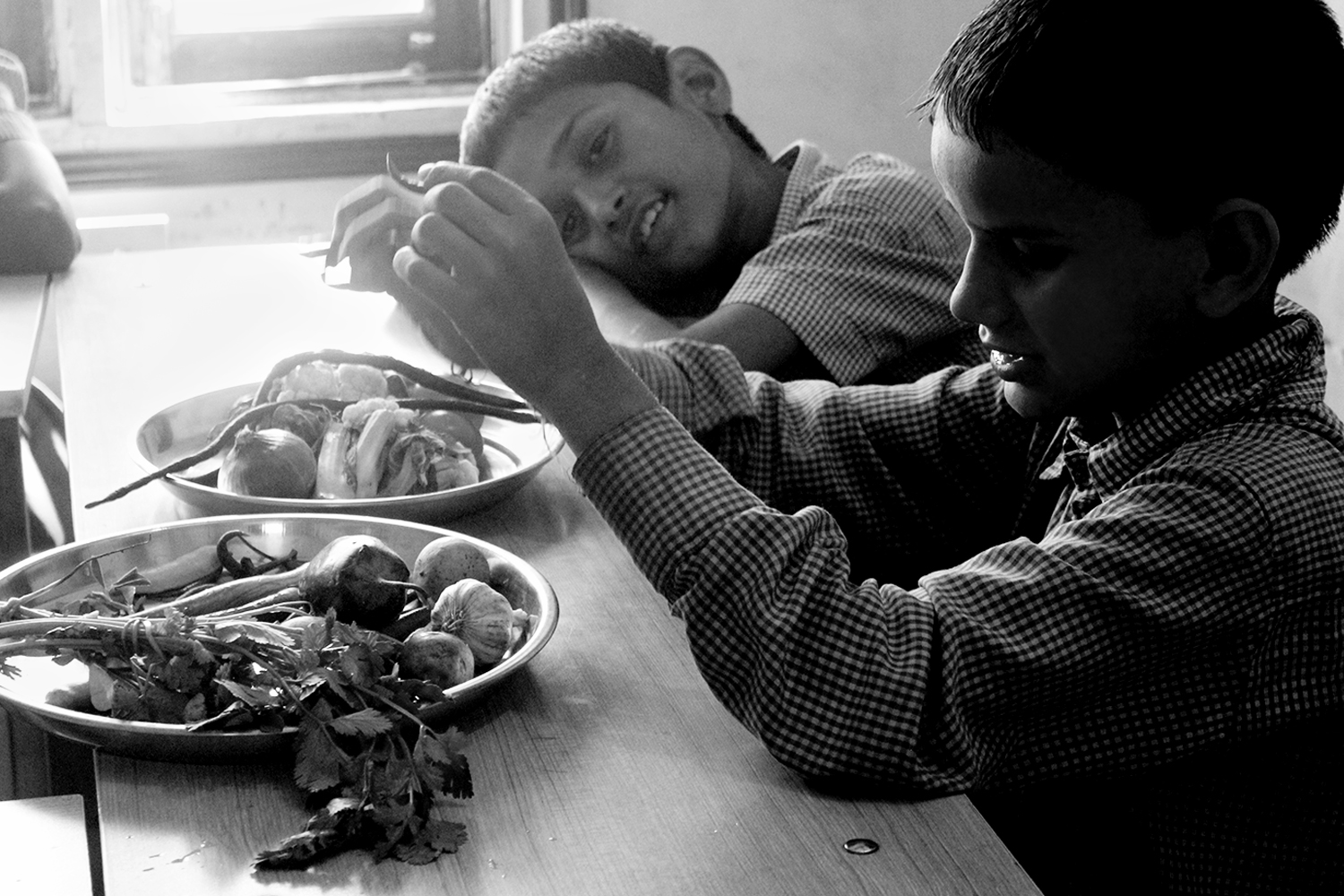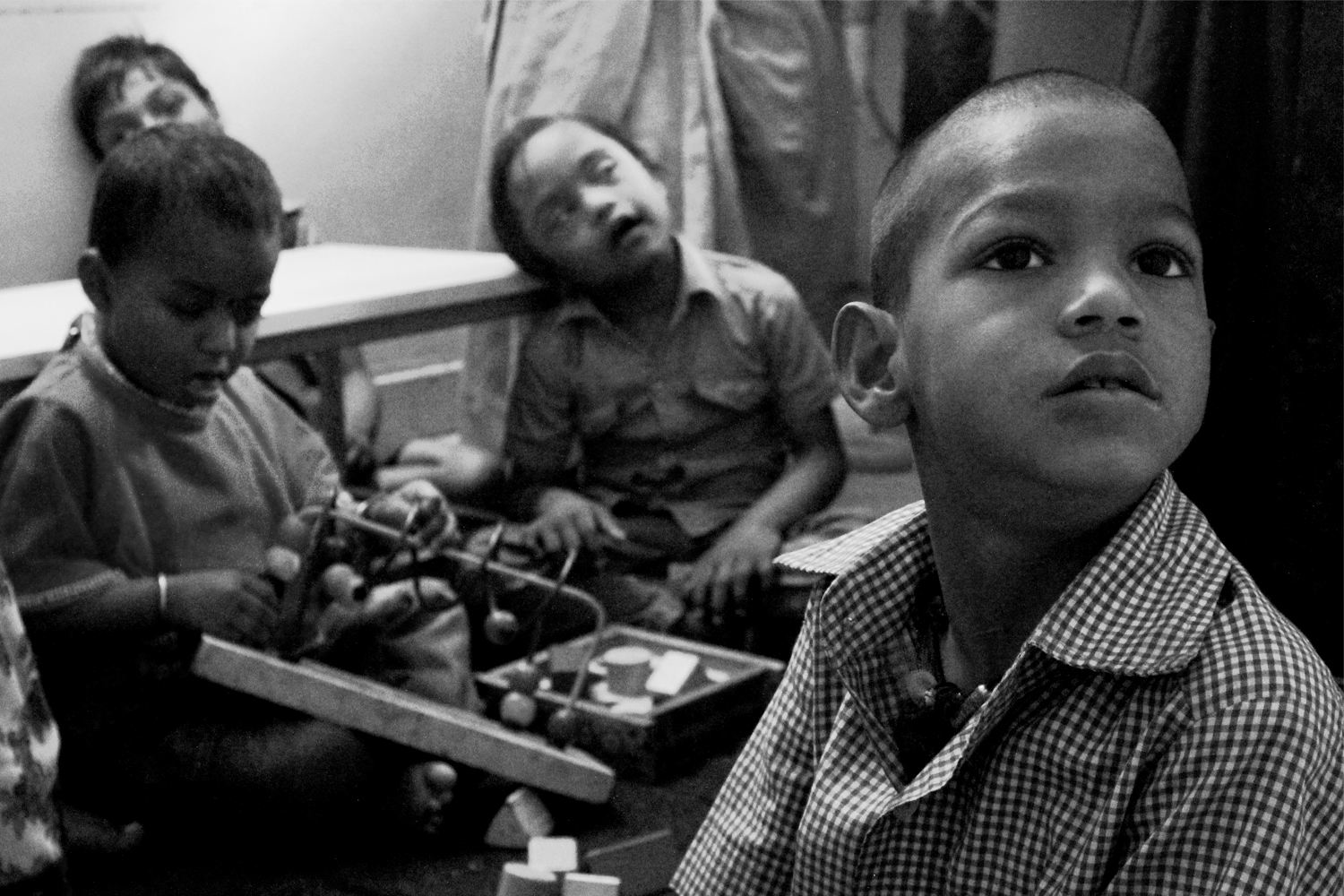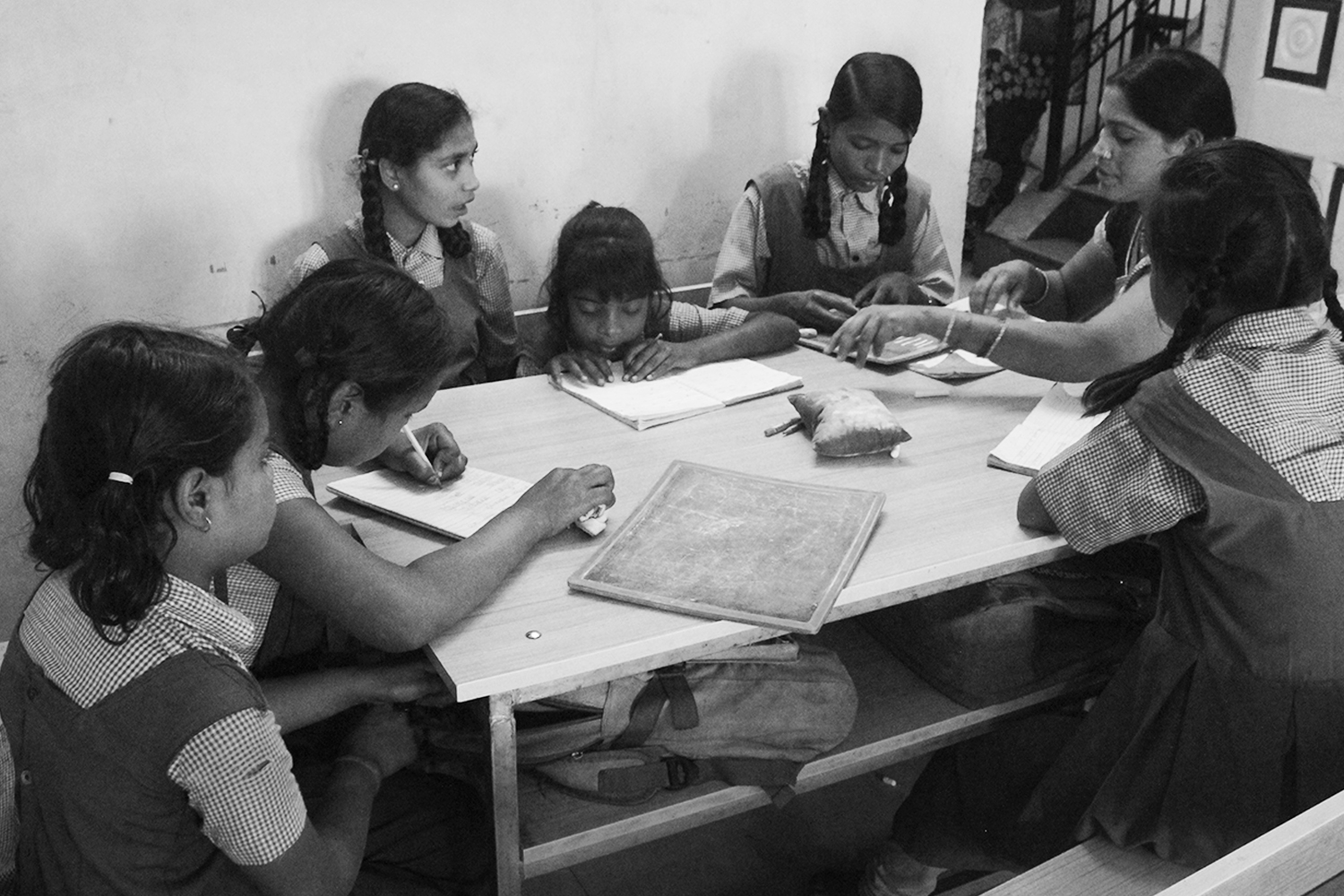Rural Centers
Services provided in Outreach Centres
Persons with special needs (PWSN) in rural areas generally do not have access to appropriate facilities. As a result, optimum development of their inherent potential becomes difficult and they themselves as well as their families suffer. Aakanksha perceived this gap & need during the field work and started providing services through outreach centres in 2001. But, the work received substantial impetus with the funding support from Paul Hamlyn Foundation in 2011.

The Activities carried out in the project can be listed as following:

Human Resource
Special educators, rural workers, ayah mothers and auto drivers were allocated one for each centre. Amongst community workers, 3 were working in villages around Urla & Bhanpuri centres and 1 was assigned for areas around Dharsiwa. Physiotherapist and speech therapist visited all the centres as per requirement. When Urla and Bhanpuri Centres were merged in Phase-III of the project, corresponding manpower was also merged. Special educators and rural workers provided direct services to children at the centres, while ayah mothers supported them. Auto drivers transported children to centres. Community workers provided home based services in Phases – I & II. They also acted as links amongst various stakeholders, such as, children, parents, members of project team, community and local government officials, etc. Community workers also worked towards organizing various programmes as well as helped in availing government facilities for the beneficiaries. Visiting physiotherapist and speech therapist, as the name suggests, visited centres from time to time for providing need based services. Rural workers used to do the follow up work between specialist visits. Parents present during the specialist visits were also being given minimal training as required for follow up at home.

The work at centres mainly consisted of direct services to beneficiaries, which can be broadly categorized into the following:
In addition to the above, following were also part of the activities:
Summary of Work Done in out reach centers
| S.No. | Activity / Event | 2012-2015 | 2015- 2017 | Remarks |
| 1 | Outreach Centres | 3 | 2 | 2 outreach centres were merged into one in 2015-17 so that it could evolve into a special school subsequently |
| 2 | Boys who availed Centre Based Services | 97 | 65 | The number of PWSN shown here include the children who have availed services even for short durations |
| 3 | Girls who availed Centre Based Services | 61 | 45 | |
| 4 | Total PWSN who availed Centre based services | 158 | 110 | |
| 5 | Boys who availed Home Based Services | 99 | -- | Home Based Services were Stopped in 2015-17 |
| 6 | Girls who availed Home Based services | 96 | -- | |
| 7 | Total PWSN who availed Home Based services | 195 | --- | |
| 8 | Total number of trainings held for / attended by PHF staff | 23 | 8 | Total 43; including 12 held in 2011-12 |
| 9 | Total number of trainings held for / attended by Parents | 13 | 5 | Total 23; including five held in 2011-12 |
| 10 | Beneficiaries enrolled in Normal Schools | 74 | 18 | |
| 11 | PWSN who were issued ration cards | 22 | --- | |
| 12 | PWSN whose disability certification was done | 65 | 21 | |
| 13 | PWSN to whom various aids and appliances were made available | 56 | 7 | |
| 14 | PWSN availing scholarship / Nirashrit pension | 20 | - |
REGIONAL LEARNING CENTRE ON DEAFBLINDNESS- EAST WORKING WITH CHILDREN WITH DEAFBLINDNESS AND MULTI SENSORY IMPAIRMENT.

INTRODUCTION
Deafblindness is a unique disability that combines varying degree of both hearing and visual impairment. It hampers communication, mobility, socialization and other important areas of development. They are thus denied even the basic human rights like education, medical care, amongst other needs that are taken for granted by most of us This project commenced on 1st October 2015 and has been funded by Paul Hamlyn Foundation and Supported by Sense International India, which is an esteemed organization in the field of Deafblindness. The activities undertaken in this project is given below